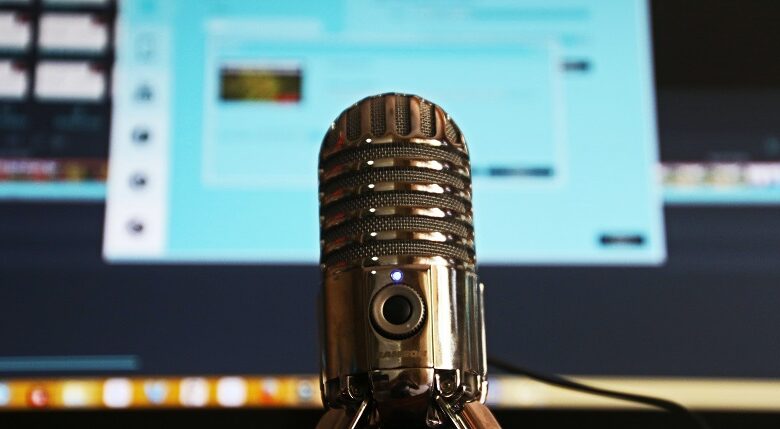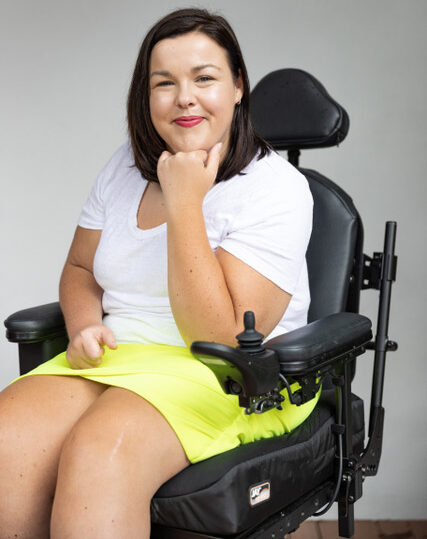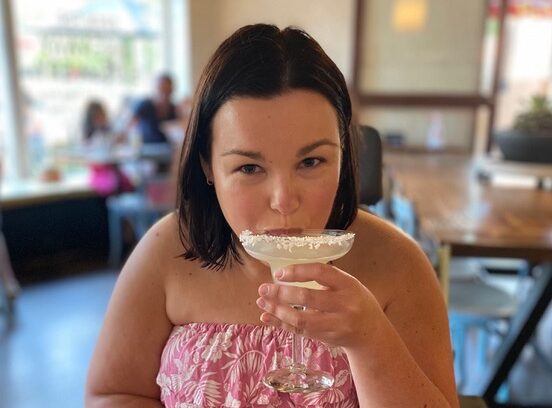
I Can’t Stand podcast: what it is truly like being a disabled woman
Peta Hooke lives in Melbourne, Australia, and has a weekly podcast, I Can’t Stand, that recently featured on Apple News and Noteworthy. Diagnosed with cerebral palsy and a wheelchair user, Peta decided to start her podcast as a way of answering questions about living with a disability after experiencing inappropriate comments from the public. This is her story.
Hello! I’m Peta, a 30-something, single woman living in Melbourne, Australia. I live with cerebral palsy (CP), a disability that I have had since birth and will have for the rest of my life.
Living with cerebral palsy
CP is a condition that affects the brains’ ability to control the muscles in the body, most often associated with speech, movement and posture.
CP is the most common disability in children in Australia. About one in 400 babies are born with CP and there are around 34,000 of us living in Australia, according to CPL Choice. Passion. Life, an organisation that supports individuals with cerebral palsy.
CP can vary significantly in how it presents in each person, but for me, it means I use a wheelchair. I can’t transfer myself out of my chair. I can’t walk and I also can’t stand.
My inability to stand and the challenges this represents inspired me to turn this inability into a positive, by naming my podcast, the I Can’t Stand podcast.
I Can’t Stand podcast

My inspiration for creating a podcast came from my personal experience (and a little bit of frustration to be honest). Strangers often come up to me in public and ask direct and sometimes odd questions, such as, “Can someone like me have sex?!” They seem oblivious to how inappropriate it is for a complete stranger to ask me those questions.
At the same time, my friends and family hardly ask me anything. When I asked them why, the consensus was that they didn’t want to ask the wrong question, a politically incorrect question or a question that might upset me.
This stark contrast got me thinking. Do people that don’t know me think of me as a woman in her 30s? I don’t think so. They only see me as ‘disabled’. Maybe, if I’m lucky, I’m seen as a person with a disability, but I certainly don’t think people see me as a woman.
I hope the podcast gives my listeners a clearer picture of what it is like to be born with a disability. I’m just like them!
The aim of my I Can’t Stand podcast is to increase societies’ understanding of what it is like to live with a disability. Every Tuesday I answer one of my audience’s questions. I will answer absolutely anything. No question is off-limits.
The episodes are super short and to the point, with an average run time of just 10 to 15 minutes. Each episode gives an insight into my life while always putting a positive spin on the barriers I face daily.
So far, the questions I have been asked range from the important, for example, what are my thoughts on body image when you have a disability, to the silly, like why I once had to be rescued from a library by four firemen. I enjoy giving my audience a giggle while also educating them at the same time.
Unexpected questions about disability
The direction of the podcasts is completely driven by the questions my audience sends me. I have been very surprised by the topics that have been most interesting to my listeners.
Given that I have had my disability since birth, I don’t know what it is like to not have a disability. So, the insight into what my audience does and doesn’t understand has been eye-opening and not what I expected.
The persistent narrative I have come across is that everyone with a disability has a sad story. If you become disabled, your life is over, and if you were born with a disability, it never started in the first place. This illustrates how much the general public doesn’t understand what it means to have a disability.
Of course, at times, having a disability sucks! It’s difficult but that isn’t the whole picture. For me, I always try to make every day positive and I live a very full and happy life.
Surpassing expectations

I live in my own home, completely independently. I have a loving and supportive family and a large group of loyal friends. I love to go out for dinner several times a week. More often than not this is with a side of tequila. My friends don’t call me ‘Peta Margarita’ for nothing.
I drive a car with hand controls. I can swim and I even have a speedboat licence. If that doesn’t illustrate that I have a full and happy life, I don’t know what does.
I am very privileged, I do know that. From the very beginning of my life, my parents never made my disability an issue – it was just an aspect.
Their continued encouragement and desire for me to who I am, has driven me to achieve, despite the many naysayers, and has been fundamental to my positive outlook on life.
If I had listened to the people who said, “You can’t do that because of your disability”, I would never have had the confidence to finish my last year of high school, complete a Bachelor’s degree followed by a Master’s degree, and then to go on to create a completely accessible home for me to live in independently.
I achieved all this despite being told repeatedly to be more realistic about what is achievable for ‘someone like me’.
My I Can’t Stand Podcast is no different. I try to drown out the negativity by highlighting a true, honest, lived perspective of what it means to be a woman in her 30s who also has a disability. I love my life.
If you would like to ask me a question, get in touch via my I Can’t Stand website, email icantstandpodcast@gmail.com, or message me on Instagram @petahooke.
By Peta Hooke
More on Disability Horizons…
- How to employ your own PAs: a practical guide from a personal perspective
- Beeyonder: virtual tours that enable you to see the world from the comfort of your home
- BBC and UK arts councils celebrate the work of disabled artists with brand new commissions
- Find stylish and innovative disability living aids to make your life easier on the Disability Horizons Shop